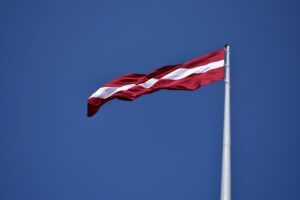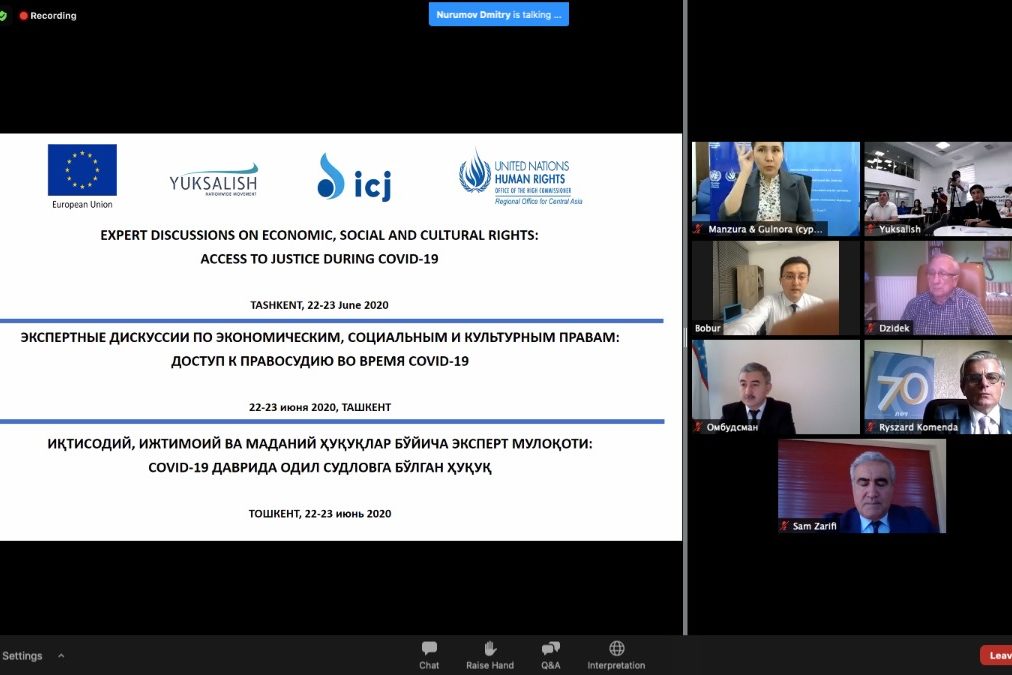
Jun 22, 2020 | News
Today, the ICJ, the Regional Office of the UN High Commissioner for Human Rights (OHCHR) for Central Asia and the Nationwide Movement “Yuksalish” are holding an Expert Discussion on the impact of COVID-19 on access to justice for economic, social and cultural rights (ESC rights) in Uzbekistan and comparative experiences from Europe and Central Asia.
The Fifth Expert Discussion, Access to justice in times of COVID-19, will address issues including access to a lawyer and access to court.
The event will present an opportunity to national and international experts, including lawyers, judges, members of UN human rights bodies, civil society, and other experts to debate questions of fundamental importance for ensuring access to justice and the protection of human rights in Uzbekistan.
“The COVID-19 pandemic has put new challenges before justice institutions around the world, including in Uzbekistan. These measures affected access to lawyers and courts judiciary therefore impeding full access to justice. This event will present an opportunity to discuss the solutions of States from around the globe about their responses to the pandemic. We believe that sharing experience among judges, lawyers and international experts from around the world will enrich the National debate and give an impulse for further development and the independence of the judiciary in Uzbekistan” said Akmal Burkhanov, Chairperson of the Nationwide movement “Yuksalish”.
“The pandemic became the so-called “maturity test” for the justice system and many of the urgent issues should be resolved in the light of the anti-COVID-19 measures taken. Therefore, I would also see the pandemic as an opportunity. The opportunity for transforming, changing for the better the functioning of traditional courts, provided that a high quality of justice and respect for individual rights are at the forefront of all changes,” pointed Eduards Stiprais, EU Ambassador to Uzbekistan.
Ryszard Komenda, Regional Representative of the UN Office for Human Rights for Central Asia quoted the UN High Commissioner for Human Rights, Michelle Bachelet, who stated that “in order to cope effectively with the pandemic states may need to introduce certain restrictions on the exercise of certain human rights, however, such restrictions need to be necessary, proportionate, and non-discriminatory”. Mr. Komenda noted that “the impact of the regulations on lockdown affected the day-to-day work of courts and lawyers. From the perspective of international human rights standards, it is crucial that the right of individuals to an operative and independent judicial system, in particular the right to an effective remedy, habeas corpus guarantees and access to a lawyer of one’s choosing are strictly adhered to”.
“Our fifth Expert Discussion on economic and social rights, is devoted to addressing the major problems people have in getting access to justice and defending their rights during the global COVID-19 pandemic,” said Sam Zarifi, the ICJ Secretary General.
“The ICJ has documented how around the world the pandemic has severely affected peoples’ right to health, to food, to water, to education and to sanitation, and we have also seen the additional difficulties facing people with lower income and access to the levers of power.”
“We aim to discuss how international law and national best practices can help the judiciary and legal system alleviate some of the human rights issues arising from Covid-19 in Uzbekistan, and maybe even build a more responsive and accountable system after the pandemic.”
Background:
The Expert Discussions on ESC rights aim to raise awareness about the implementation of international law and standards on ESC rights by the national justice system, to facilitate access to justice in relation to ESC rights and promote effective use of international law on ESC rights at the national level. Each Expert Discussion is attended by international and national experts.
The first discussion was held in September 2018 on international standards in labour rights. The second meeting, held in December 2018, concerned judicial application of the principle of non-discrimination; the third meeting, held in March 2019, was dedicated to the rights of people with disabilities, and the forth meeting, held in October 2020, discussed the right to adequate housing in Uzbekistan.
Uzbekistan ratified the International Covenant on Economic, Social and Cultural Rights (ICESCR) in 1995.
The Expert Discussions are organized by the ICJ within the framework of the “Advancing Civil Society in Promoting economic, social and cultural rights (ESCR) Standards in Uzbekistan (ACCESS)” Project funded by the EU through the European Instrument for Democracy and Human Rights (EIDHR).
Contact:
Dilfuza Kurolova, ICJ Legal consultant, t: +998 90 9050099 ; e: dilfuza.kurolova(a)icj.org
Agenda:
English version
Russian version
Uzbek version
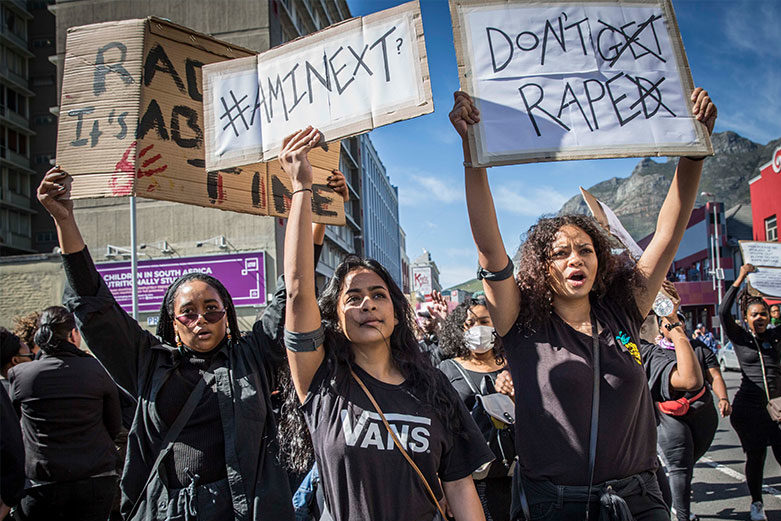
Jun 17, 2020 | Feature articles, News
While reports suggest a decrease in crime during lockdown due to restricted movement, violence against women, including gender-based violence (GBV), continues unabated, and has likely worsened throughout Africa, replicating global trends in this regard.
Africa has a serious GBV crisis, which domestic legislative frameworks and accountability mechanisms have failed to fully address.
Various factors contribute to the increasing incidence of GBV in Africa. These factors are facilitated by the failure of States to adequately discharge their obligations to protect persons from gender based violence, through legal reform and administrative actions.
The issues manifest in gender insensitive actors and institutions that administer justice, impunity for abuses, and limited capacity of justice actors to properly handle cases due to lack of training and resources.
There are also challenges in issuance of restraining and protection orders. All these problems are reinforced by a widespread lack of willingness to recognize, understand and engage with women’s rights by State actors.
In Africa, more than one in three women (36.6%) report having experienced physical, and/or sexual partner violence or sexual violence by a non-partner. Studies have also found that the highest prevalence of child sexual abuse is in Africa.
This GBV crisis in Africa has been worsened by the coronavirus pandemic, which has contributed to a surge in GBV. The pattern of rape, sexual violence, and killing of women continues to spread across the continent, even during this health crisis.
On 27 May, the news of the rape and killing of a 22-year-old student while she studied in an empty church in Nigeria sparked outrage and protests in many parts of the country.
In South Africa, the body of 28-year-old woman Tshegofatso Pule was found on 8 June. She had been stabbed and hanging from a tree; she was eight-months pregnant at the time.
There have been several reports of femicide since some COVID-19 restrictions were lifted in South Africa. In Zimbabwe, increasingly there have been reports of rape and other sexual violence being used as political weapons to suppress political opposition in Zimbabwe.
Recently, there have been reports that three leaders of the MDC-A party were abducted and subjected to torture which included sexual violence after staging a flash demonstration against failure of the government to address livelihood issues during the Covid-19 lockdown.
While the demonstrations were led by both men and women, allegations focused on sexual violence against women by State agents have been made on numerous occasion especially following protests against the government. In both instances the response by the State authorities has been to challenge the allegations before conducting a thorough investigation.
In the recent case of the MDC-A leaders, officials have not only refuted the allegations but also charged the victims for breaching Covid-19 regulations and recently arrested them for allegedly ‘faking abduction’ and lying about torture..
Global Standards
All States must protect against gender based violence, whether by State or private actors, pursuant to their obligations under the International Covenant on Civil and Political Rights, the UN Convention Against Torture, the Convention on the Prevention of all forms of Discrimination against Women (CEDAW) and the Convention on the Rights of the Child. Most African countries are parties to these international treaties.
In addition, States of the African Union are bound to respect a range of international law and standards which prohibit gender based discrimination and sexual violence, most notable are the African Charter, and the Protocol to the African Charter on Human and People’s Rights on the Rights of Women (the Maputo Protocol) and the African Charter on the Rights and Welfare of the Child.
Article 4 of the Maputo Protocol provides that “every woman shall be entitled to respect for her life and the integrity and security of her person. All forms of exploitation, cruel, inhuman or degrading punishment and treatment shall be prohibited.
States parties shall take appropriate and effective measures to enact and enforce laws to prohibit all forms of violence against women, including unwanted or forced sex whether the violence takes place in private or in public.” Article 16 of the African Charter on the Rights and Welfare of the Child includes sexual abuse of children as a form of torture, cruel, inhumane and degrading treatment.
As explained by the CEDAW Committee, all States, including African States, have a due diligence obligation to prevent, investigate, prosecute and punish rape and other GBV.
It is noteworthy that, 17 years into its existence, not all African countries have ratified or signed the Maputo Protocol, with only 42 out of 55 AU member states having ratified the convention. Of the few countries which have comprehensive domestic legal frameworks to eliminate all forms of violence against women, they too often face challenges in implementation.
States have the primary responsibility to take effective measures to eradicate GBV. States have an obligation to take the necessary action at all levels to ensure the elimination of harmful gender norms and stereotypes, as well as to ensure the elimination of GBV.
African countries need to urgently respond to the scourge of GBV in the region. The ICJ intends to publish a series of legal briefs on the “State of Rape Law” as provided in various jurisdictions in Africa, in order to highlight the challenges in criminal justice systems in relation to addressing the crime of rape and to provide concrete recommendations for reform.
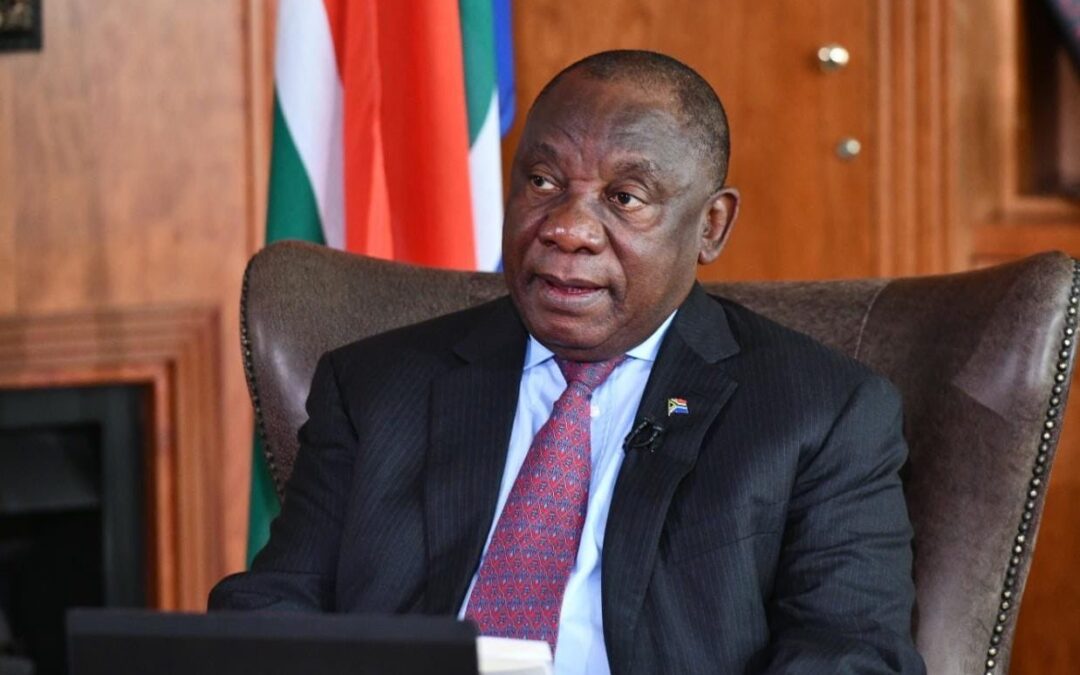
Apr 28, 2020 | Advocacy, News, Open letters
The ICJ today called on the South African government to take measures to ensure access to justice and the full fulfillment of the economic, social and cultural rights of all in the country.
The South African authorities must also remove legal hurdles in accessing just compensation for rights violations occurring during nationwide lockdown, the ICJ said.
The call comes as South Africa enters its final week of a lockdown period, which initially began on 26 March 2020. Since the beginning of the lockdown period the ICJ has been working closely with a broad coalition of local civil society organizations and movements called the C19 People’s Coalition.
“The ICJ applauds South Africa on its announcement that it will commit 10% of its GDP to a social relief and economic support package addressing poverty and in inequality which has been exacerbated by COVID-19,” said Arnold Tsunga, ICJ Africa Director.
“However we note with concern the high levels of repression and human rights abuses committed by enforcement officers enforcing Lockdown Regulations and the inadequacy of social assistance measures to ensure an effective elimination of poverty in accordance with South Africa’s international and domestic human right obligations.”
- Repression and human rights abuses by enforcement officers during Lockdown
Both the Disaster Management Act and Lockdown Regulations enacted in terms of it create doubt about whether victims of violations of human rights in the enforcement of lockdown will be able to claim compensation for such violations.
The ICJ has therefore written to President Cyril Ramaphosa (photo) and Speaker of the National Assembly Thandi Modise calling on the authorities to make the necessary legal amendments required to ensure the full protection of the right to access to justice, which includes the right to effective remedies and reparation.
The ICJ calls on authorities to ensure the amendment of the National Disaster Act and Lockdown Regulations to ensure that victims of human rights abuses have full and effective access to the right to remedy and reparation including compensation.
- Inadequate Social Assistance provided
Despite the large stimulus package announced by President Ramaphosa on 21 April, the C19 People’s Coalition has correctly argued that the new COVID-19 social grant of R350 ($18.44 USD) per month for unemployed persons is less than a third of the R1227 ($64.65) that government itself estimates individuals require to be lifted out of poverty.
In addition, the increase of the Child Support Grant of R500 ($26.35) per month appears, contrary to what the President’s announcement suggested, to be allocated per caregiver not per child thus drastically reducing its potential impact.
The ICJ calls on authorities to ensure the full provision of a social safety net to all in South Africa by: 1) raising the levels of all non-contributory social assistance benefits to a level that ensures an adequate standard of living for recipients and their families; and 2) ensuring that those between the ages of 18 and 59 with little or no income have access to social assistance.
These two measures were among those specified in the Concluding Observations of the Committee on Economic, Social and Cultural Rights to South Africa.
South Africa declared a moratorium on all evictions during the lockdown period on 26 March after local organizations and the ICJ had called for such a move.
Later amendments to Lockdown Regulations made it a criminal offence for any person to evict any other person. Despite this, evictions continue in some places unabated as is illustrated by statements of Abahlali BaseMjondolo and Abahlali BaseMjondolo Women’s League late last week.
These evictions have sometimes been violent and accompanied by serious allegations of attempted murder of community members and human rights defenders.
The ICJ calls on authorities to ensure the immediate cessation of all evictions. The President of South Africa and the Parliament of South Africa must make sure that police officers, security and other companies and government officials participating in evictions are clearly, decisively and publicly held to account.
Those carrying out evictions should be prosecuted in accordance with Lockdown Regulations. The police and prosecuting authorities should also investigate and where sufficient evidence exists pursue prosecution of those found to have committed crimes of violence or similar offences against those who are subjected to or defend against such evictions.
“The continued violent attacks experienced by human rights defenders and those simply trying to retain their homes is unacceptable. The time has come for the President of South Africa and Parliament of South Africa to intervene directly to prevent any further such attacks generally, but in particular with regard to Abahlali BaseMjondolo settlements in KwaZulu-Natal,” added Arnold Tsunga, ICJ Africa Director.
Contact:
Tim Fish Hodgson, ICJ Legal Adviser, t: +2782871990 ; e: tim.hodgson(a)icj.org
Shaazia Ebrahim, ICJ Media Officer, t: +27716706719 ; e: shaazia.ebrahim(a)icj.org
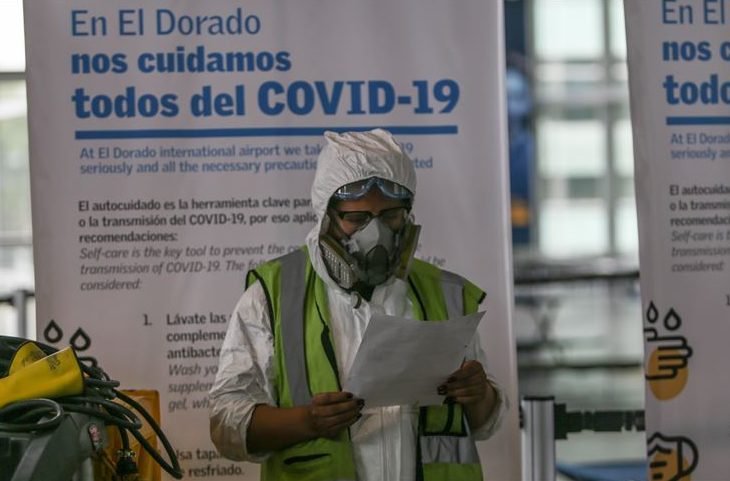
Apr 8, 2020 | Feature articles, News
A Feature Article by Rocio Quintero, Legal Adviser, ICJ Latin American Programme, based in Bogota.
Throughout several decades, a large number of Colombians have been victims of serious crimes related to the ongoing armed conflict. In particular, human rights defenders have been targets of serious human rights violations and abuses, such as killings, death threats, and harassments.
Just this year, the United Nations High Commissioner for Human Rights (OHCHR) has received information of 56 possible cases of killings of human rights defenders. Unfortunately, the COVID-19 outbreak has not stopped the violence against human rights defenders.
In that regard, since the first confirmed case of COVID-19 in the country on 6 March 2020, the Organization of American States (OAS) and International Amnesty has reported six killings. The perpetrators of those crimes have not been identified yet.
Human rights violations and abuses against local communities have not stopped either. Quite the opposite seems to be true.
In that regard, it is said that armed groups, including paramilitary groups and new groups made up of dissident FARC-EP members, are taking advantage of the outbreak to commit illegal actions with fewer constraints, mainly, in rural areas of the country.
Among these actions, it should be highlighted the enforced displacement of 250 people and the forced confinement of 770 families due to combats between a paramilitary group and a guerrilla group. Both actions took place in the pacific region of the country, an area where the conflict has intensified after the peace agreement. In addition, at least three ex-members of the FARC-EP have been murdered in March 2020.
Despite the seriousness of the situation described above, the Colombian government response to the COVID-19 crisis has focused on the creation and implementation of non-conflict-related measures.
In that regard, the Government has decreed various and vital regulations to mitigate the social and economic impact created by the virus. Among others, the president declared a state of emergency and a mandatory 19-day national quarantine that started on 25 March 2020.
The Government also established a program of economic and social aid for those who will be affected most by the quarantine.
None of the measures were designed bearing in mind the particular situation of human rights defenders. Consequently, their protection is not a central element of the Colombian pandemic policies.
Since the implementation of the peace agreement and victims’ rights are not top priorities of the current Government, the approach adopted is not entirely unexpected.
Although, to be fair, it should be recognized that the State programmes for the implementation of the peace agreement have continued operating during the pandemic.
It might be argued that the pandemic has the potential to affect predominantly human rights that have not been directly linked with the internal conflict.
Therefore, following this point of view, the prioritization of non-conflict-related measures is justified and required.
Although this position is based on a valid premise, which is that the COVID-19 pandemic creates several challenges that go beyond conflict-related human rights problems, it ignores a central element of Colombian reality: the existence of an ongoing armed conflict.
Currently, the conflict affects a considerable part of the Colombian population directly, including the majority of human rights defenders. In that regard, last year, it was reported illegal actions related to the internal armed conflict in at least 10 out of 32 departments of Colombia.
In this context, ignoring the importance of the conflict might lead to the implementation of ineffective pandemic measures. This is because, in conflict zones, the protection of human rights requires addressing the specific challenges that the pandemic has created in those territories.
For instance, the presence of illegal groups can prevent local communities from getting tested for COVID-19 and access to health services. Likewise, due to the quarantine, illegal groups might identify easier the location of human rights defenders and retaliate against them.
In relation to human rights defenders, it should also be highlighted the problems related to access to adequate protection measures. In that regard, Amnesty International has denounced that the protection measures for some human rights defenders have been reduced due to the pandemic.
In a similar way, a local NGO expressed concerns for the decision of the National Protection Unit to suspend indefinitely the sessions of the commission where protection measures are defined.
In light of the above, beyond political considerations and the general Government’s priorities, it is imperative that the Government adopts a more comprehensive approach to tackle the pandemic.
It should address the differential impact the pandemic might have on people who lead social and legal transformations in the conflict zones of the country.
In particular, it should implement or adapt protection measures to be effective during the COVID-19 crisis. Similarly, the right to an effective remedy and reparation should also be not only guaranteed, but realized, in compliance with international standards.
Additionally, it is also important that the national Government reinforce its efforts to obtain a humanitarian ceasefire by all illegal groups during the COVID-19 crisis.
A total ceasefire would contribute to (i) protecting the civilian population for violent actions, (ii) implementing the pandemic measures in conflict zones, and (iii) avoiding a proliferation of the virus in vulnerable communities.
This is a crucial measure that has already been requested by national civil organisations, the Head of the UN Verification Mission in Colombia, the OAS, and some parliamentarians.
As yet, only one illegal group has accepted a ceasefire: the National Liberation Army (Ejército de Liberación Nacional, ELN), the largest active guerrilla in Colombia, who declared a unilateral ceasefire during April.
To conclude, acknowledging the importance of the conflict is essential to tackle the human rights implications of the COVID-19 crisis.
This is not only necessary to have comprehensive pandemic policies, but also to make sure that the problems and needs in the conflict zones are not neglected and aggravated during the pandemic.
On this point, as recently stated by UN Secretary-General, people who are most vulnerable during a conflict are also “most at risk of suffering “devastating losses” from the disease.”
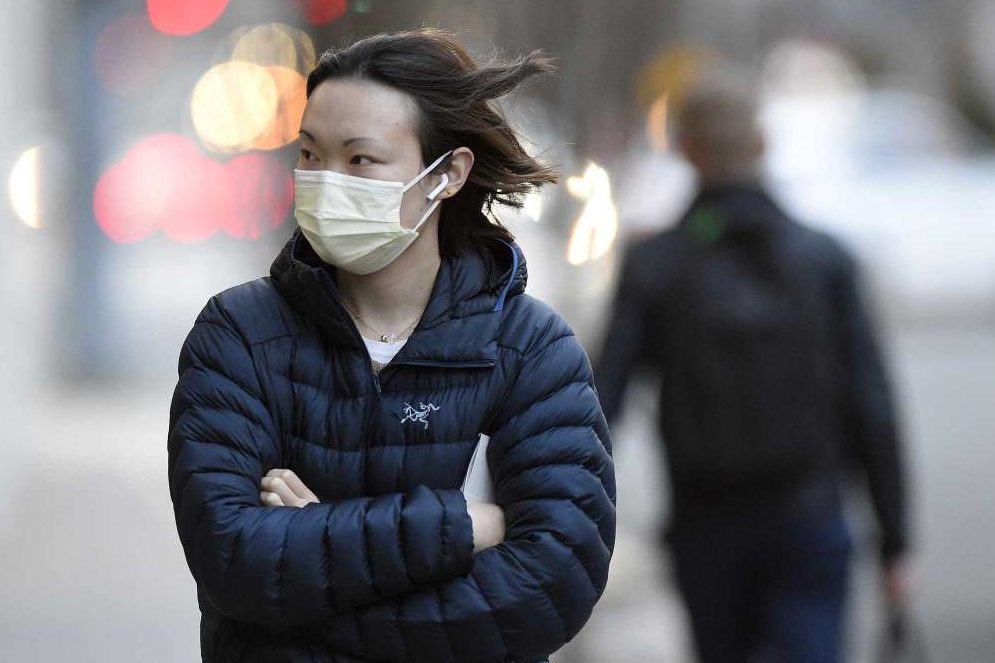
Apr 6, 2020 | Feature articles, News
A Feature Article by the Access to Justice for Women Team of the ICJ.
As the COVID-19 pandemic spreads across the globe, many governments are introducing a spectrum of measures to curb the spread of the novel coronavirus, including travel bans, lockdowns, curfews, and school, workplace and border closures.
While it is important that States act decisively in discharge of their obligations to protect the rights to life and health of all people during this pandemic, it is equal that they do so in a human rights compliant manner, so as not to compound the harms brought directly by the virus.
This entails, among other things, acting in a manner that provides equal protection and is non-discriminatory. Complying with these principles requires taking into account gender impacts and providing for gender-specific responses.
However, a number of measures presently being taken by governments around the world to attempt to curb the spread of the virus can be expected to exacerbate pre-existing gender inequalities and therefore disproportionately affect women’s enjoyment of social and economic rights.
Many women who are disabled, refugees, migrants, detainees, living in poverty and or belonging to ethnic, racial, religious or sexual minority groups are experiencing or are likely to experience intersecting forms of discrimination during this time of crisis.
What Does #StayHome Mean to Women?
Lockdowns, quarantines, and school closures to control the pandemic in many countries have a differential effect on women.
Women and girls are most expected to perform caregiving role within families, which means less economic and work opportunities for them and thus denying their basic rights to development.
This condition is worsened if they are being quarantined with an abusive partner as they are exposed to greater risks of intimate partner violence during the outbreak.
Unfortunately, in many places there is a significant lack of guidelines or information on how to contact police, access medical treatment, psychological support, or access to shelters when domestic violence occurs during the pandemic.
In the UK, for example, while 25 organizations helping domestic violence victims have reported an increase in their cases since the surge of the COVID-19 epidemic, one quarter said they could not effectively support victims because of technical issues, inability to meet victims, and staff sickness.
Additionally, with resources already stretched in fighting the spread of the virus, many State authorities may not see as a priority access to comprehensive sexual and reproductive health services for women, which are already restricted by prohibitive laws and customs in many contexts.
This results in significant limitations on women’s rights to menstrual health, maternal health, and safe abortion.
Women at Work
According to the International Labour Organization (ILO), women are over-represented in more affected sectors (such as services) or in occupations that are at the frontline of dealing with the pandemic.
The ILO estimates that 58.6 percent of employed women work in the services sector around the world. Women also have less access to social protection and will bear a disproportionate burden in the care economy, in the case of closure of schools or care systems.
Women migrant workers are also vulnerable to the impact of the COVID-19 crisis, as extensive travel restrictions constrain both their ability to access their places of work in destination countries and return to their families.
Women at the Border: Refugees & Asylum seekers
There is a severe lack of secure, safe and accessible infrastructure and services in most refugee camps and temporary settlements.
Asylum seekers face right now a long wait if the courts are closed due to the pandemic, or worse, being returned to their home country without having a chance to pursue their claims, sometimes in violation of the principle of non refoulement.
As the virus hits overcrowded displacement sites, the consequences can expected be catastrophic. Moreover, in this setting, studies found that women and girls are often exposed to sexual violence and exploitation when they are forced to openly defecate or walk to shared sanitation facilities.
All State Measures to COVID-19 Must Be Gender Responsive
Under the International Covenant on Economic, Social and Cultural Rights (ICESCR), States have duty to achieve the full realization of the right to everyone to the enjoyment of the highest attainable standard of physical and mental health.
The Convention on the Elimination of All Forms of Discrimination against Women (CEDAW) also provides of the obligation of States to take all appropriate measure to eliminate discrimination against women in the field of health care in order to ensure, on a basis of equality of men and women, access to health care services, including those related to family planning.
Furthermore, failure to recognize the gender dynamics of outbreaks limits the effectiveness of response efforts and consequently impedes women’s rights.
In order for the response to disease outbreaks such as COVID-19 to be effective and not reproduce or perpetuate gender and health inequities, it is important that gender norms and roles are identified and incorporated in all socio- economic measures established to counter the pandemic.
Further, the emergency preparedness and response plan must address gender roles, responsibilities, social norms and specific needs of women.
States should also provide new strategies for women victims of domestic violence to be protected during the lockdown.
Governments should include the work of domestic violence professionals an essential service and provide emergency resources for anti-domestic abuse organizations to help them respond to increased demand for services.
They should also consider, alternative means, such as through “pop-up” counseling centers, reporting in pharmacies, to encourage women to report domestic violence.
Governments must ensure all measures to combat the outbreak are gender responsive while being in strict accordance with human rights standards.
While states may limit or derogate from certain rights to meet a public health crisis, such restrictions are always subject to the principles of legality, necessity proportionality and nondiscrimination.
Given that women are often to be found in the more vulnerable categories of informal work, for instance, as domestic workers or self-employed home-based workers, authorities should enhance universal access to collectively-financed health services for all, including uninsured workers and their families.
States must also expand access to collectively-financed paid sick leave, sickness benefits, and parental or care leave to ensure income security for those who are sick, quarantined or caring for children, elderly or other family members.
Moreover, governments should ensure that women asylum seekers, internally displaced persons, and refugees are included in national COVID-19 surveillance, preparedness, and response plans, and ensure that menstrual hygiene, reproductive, and other primary health care commodities are well-stocked and available.
Lastly, perspectives, experiences, and voices of diverse women, including LBTI persons (as enshrined in the Yogyakarta Principles), should be included in decision-making process around the COVID-19 outbreak measures because effective global responses, to public health emergencies must be in line with the rights and needs of affected women.
***
Download the Op-Ed in other languages:
Nepali (PDF)
Tamil (PDF)
Sinhala (PDF)
Indonesian (PDF)






